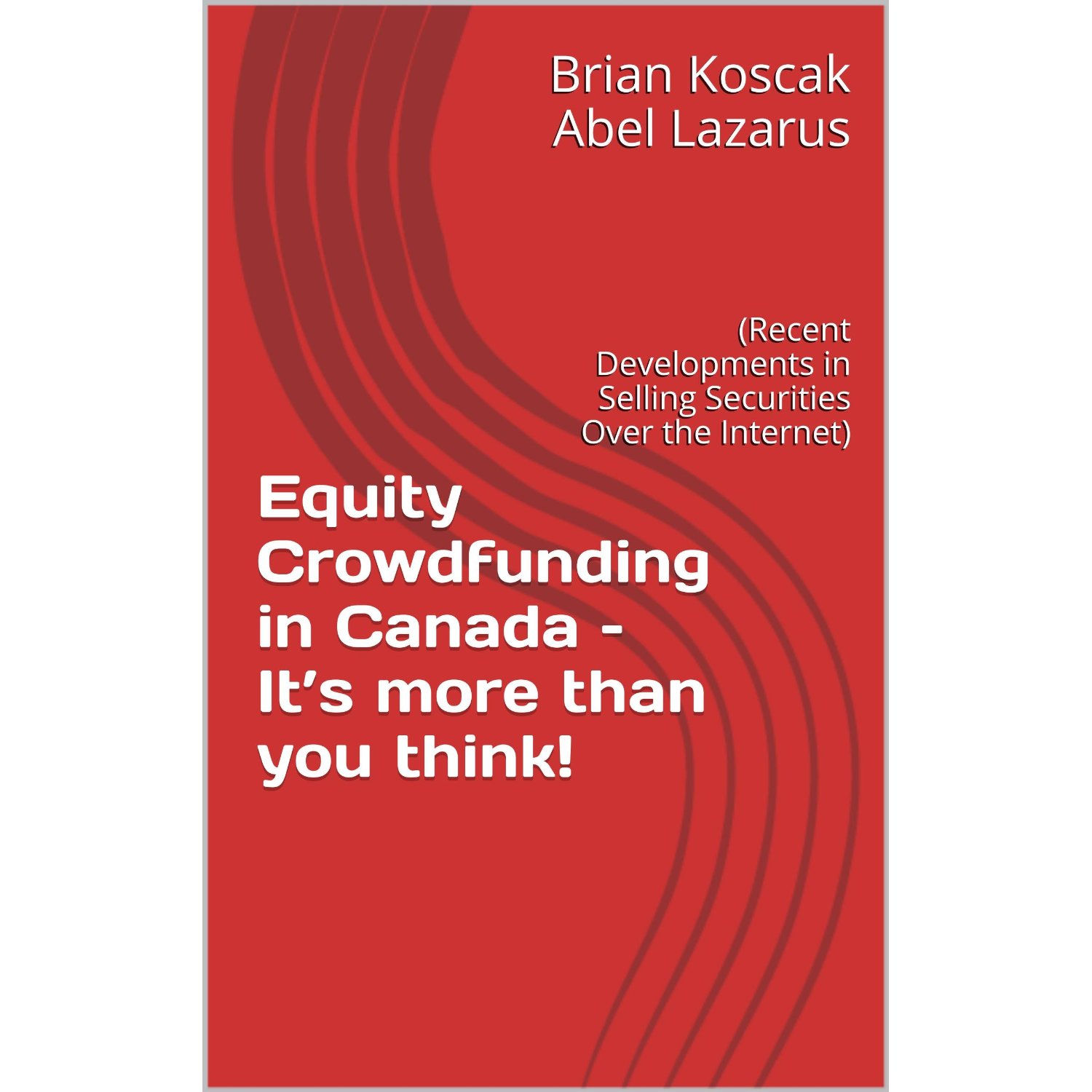 Effective May 1, 2014 (the Effective Date), the Canadian Securities Administrators (the CSA) has announced that the Ombudsman for Banking Services and Investments (OBSI) will become the independent and common dispute resolution and mediation service provider that will be required to be used by all registered firms under NI 31-103[1] in all jurisdictions in Canada, other than in Québec. This is subject to final rule making and/or legislative approvals in all applicable jurisdictions. IIROC and the MFDA already mandate the use of OBSI as the dispute resolution service provider for their member firms.
Effective May 1, 2014 (the Effective Date), the Canadian Securities Administrators (the CSA) has announced that the Ombudsman for Banking Services and Investments (OBSI) will become the independent and common dispute resolution and mediation service provider that will be required to be used by all registered firms under NI 31-103[1] in all jurisdictions in Canada, other than in Québec. This is subject to final rule making and/or legislative approvals in all applicable jurisdictions. IIROC and the MFDA already mandate the use of OBSI as the dispute resolution service provider for their member firms.
In Ontario, the proposed amendments to NI 31-103 have been sent to the Ontario Minister of Finance and, if the Minister approves the amendments or does not take any further action by February 18, 2014, the amendments will come into force on the Effective Date.
Background
In November 2012, the CSA published a proposal (the 2012 Proposal) which, if adopted, would require all registered firms outside of Québec to utilize OBSI as a service provider in respect of their dispute resolution or mediation services obligations under Section 13.16 [dispute resolution service] of NI 31-103 (Section 13.16). The CSA received a number of comment letters and has now published final amendments to NI 31-103 regarding such dispute resolution requirements.
Except for Québec, the CSA has previously published temporary relief orders from the application of Section 13.16 for firms that were registered on September 28, 2009, the date when NI 31-103 came into effect.
It is contemplated that the temporary relief under the orders will expire on May 1, 2014 and transition provisions in the amending instrument to NI 31-103 will preserve the temporary relief until August 1, 2014.
Who is OBSI?
OBSI is a not-for-profit organization that provides dispute resolution services to the banking sector and investment industry. It is an independent agency headed by an ombudsman and governed by a board of directors. OBSI does not charge any fees to clients of its participating firms. Instead, OBSI requires all participating firms to pay a levy based on their size or volume of business.
OBSI’s mandate is to make recommendations for the resolution of disputes between participating firms and their clients about banking or investment products and services. It is not an arbitrator that makes binding decisions for the parties to a dispute. OBSI conducts its dispute resolution activities in an informal, non-legalistic manner. (Source: 2012 Proposal)
Section 13.16 of NI 31-103 – the dispute resolution requirement
Section 13.16 requires a registered firm to ensure that an independent dispute resolution or mediation service is made available at the registered firm’s expense to any of its clients that has a complaint about any trading or advising activity of the registered firm or one of its representatives. The amendments to NI 31-103 provide that, outside of Québec, a registered firm must take reasonable steps to ensure that OBSI will be the independent dispute resolution and mediation service that is made available to a client that has an eligible complaint.
An complaint means a complaint that: (a) relates to trading or advising activity of a registered firm or a representative of the firm; and (b) is received by the firm within 6 years of the day when the client first knew or reasonably ought to have known of an act or omission that is a cause of or contributed to the complaint. An eligible complaint is a complaint that has been referred to OBSI and subject to the terms and conditions of its authority.
Section 13.16 does not apply to investment fund managers[2], Québec registrants who are subject to certain dispute resolution requirements within their own jurisdiction,[3] or permitted clients who are not individuals.[4]
A. Registered firms
Below is a discussion of what registered firms need to know about the new Section 13.16 dispute resolution requirements.
#1. Actions a registered firm must take if it receives a complaint – If a registered firm receives a complaint from a client, the registered firm must, as soon as possible, provide the client with a written acknowledgement of the complaint that includes: (a) a description of the registered firm’s dispute resolution obligations under Section 13.16; (b) the steps the client must take in order for OBSI’s services to be made available to the client; and (c) the name and contact information for OBSI.
#2. A registered firm has 90-days to respond to a complaint – Within 90 days of receiving the complaint, a registered firm may: (a) reject a complaint; or (b) make an offer to resolve a complaint, and if so, the registered firm must, as soon as possible, provide the client with written notice of its decision and include certain prescribed information.
#3. Registered firms must pay for the dispute resolution services – A registered firm pays for OBSI’s services and not the complainant (defined below).
#4. Registered firms should document all complaints – Registered firms should document and respond to all complaints received from a client, a former client or a prospective client who has dealt with the registered firm (each being a complainant).
#5. Registered firms should handle all complaints fairly – In order to handle complaints fairly, a registered firm’s complaint system should include standards allowing for objective factual investigation and analysis of the matters specific to the complaint. The CSA believes that registered firms should take a balanced approach to the gathering of facts that objectively considers the interests of: (a) the complainant; (b) the registered representative; and (c) the firm. The CSA recommends that registered firms should not limit their consideration and handling of complaints to those relating to possible violations of securities legislation.
#6. No parallel proceedings – A registered firm cannot make an alternative independent dispute resolution or mediation service available to a client at the same time it makes OBSI available. Alternative service providers, other than OBSI, can only be used in exceptional circumstances.
B. Investors or clients of registerd firms
Below is a discussion of what investors or clients of registered firms need to know about the new Section 13.16 dispute resolution requirements.
#1. Applies to individuals only – The Section 13.16 requirements apply to individuals only and not legal entities. It also does not apply to a “permitted client” that is not an individual.
#2. Time limits for complainant to respond to a registered firm’s decision – A complainant has within 180 days of the client’s receipt of written notice of the registered firm’s decision to notify OBSI that the client wishes to have the complaint considered by OBSI.
#3. OBSI’s $350,000 maximum monetary claims threshold – A complainant can only use OBSI’s services if the complainant agrees that any amount the complainant seeks to claim against a registered firm will not be greater than $350,000. This limit applies only to the maximum amount that can be recommended by OBSI. However, a complaint made to a registered firm may include a claim for a larger amount until it is escalated to OBSI. A complainant also has redress with the courts if desired.
#4. Escalating a complaint from the registered firm to OBSI – A client may escalate an eligible complaint to OBSI if:
- the registered firm fails to give the client notice of its decision within 90 days of receiving the complaint (telling the client that the firm plans to take more than 90 days to make its decision does not ‘stop the clock’). The client is then entitled to escalate the complaint to OBSI immediately or at any later date until the registered firm has notified the client of its decision; or
- if the registered firm has given the client notice of its decision about the complaint (whether it does so within 90 days or after a longer period) and the client is not satisfied with the decision, the client then has 180 days to escalate the complaint to OBSI.
In either instance, the client may escalate the complaint by directly contacting OBSI.
#5. Using a provider other than OBSI – A client is not restricted from taking a complaint to a dispute resolution service provider of their own choosing (i.e., other than OBSI) at their own expense or to bringing a court action.
Final Thoughts
The Section 13.16 dispute resolution amendments have been adopted by the CSA despite serious concerns expressed by various capital market participants. Some of these concerns include, but are not limited to:
- providing OBSI with a monopoly as the only dispute resolution provider;
- failing to provide, in advance , a funding model explaining how registered firms, such as exempt market dealers, will be assessed and the possible costs to their businesses; and
- concerns over OBSI’s expertise.
Registered firms should start considering now how these Section 13.16 dispute resolution amendments will impact their client forms, policies and procedures manual and other internal processes.
* * *
Disclaimer
This blog is not intended to create, and does not create an attorney-client relationship. You should not act or rely on information on this blog post without first seeking the advice of a lawyer. This material is intended for general information purposes only and does not constitute legal advice. For legal issues that arise, the reader should consult legal counsel.
Brian Koscak is a Partner at Cassels Brock & Blackwell LLP located in Toronto, Ontario and Chair of the Exempt Market Dealers Association of Canada. Brian is also a member of the Ontario Securities Commission’s Exempt Market Advisory Committee. Brian can be reached by phone at 416-860-2955, by e-mail at bkoscak@casselsbrock.com or on twitter @briankoscak. Brian also regularly writes about Canadian securities law matters on his personal blog at www.briankoscak.com.
[1] NI 31-103 means National Instrument 31-103 Registration Requirements, Exemption and Ongoing Registrant Obligations.
[2] The Section 13.16 dispute resolution requirements do NOT apply to an IFM unless it also operates a registered dealer or adviser and, if so, only in connection with conduct under their dealer or advisor registration.
[3] Section 168.1.3 of the Québec Securities Act, includes requirements with respect to dispute resolution or mediation services that are different than those set out in section 13.16 of NI 31-103. In Québec, registrants must inform each complainant, in writing and without delay, that if the complainant is dissatisfied with how the complaint is handled or with the outcome, they may request the registrant to forward a copy of the complaint file to the Autorité des marchés financiers (the AMF). The registrant must forward a copy of the complaint file to the AMF, which will examine the complaint. The AMF may act as a mediator if it considers it appropriate to do so and the parties agree.
[4] Section 13.16 of NI 31-103 does not apply in respect of a complaint made by a permitted client that is not an individual. Accordingly, the CSA does not expect a firm that only has clients of that kind to maintain membership in OBSI.





[…] For a prior article about OBSI written on this blog click here. […]